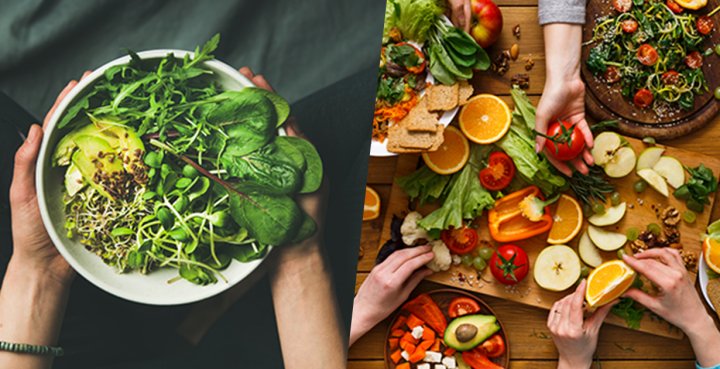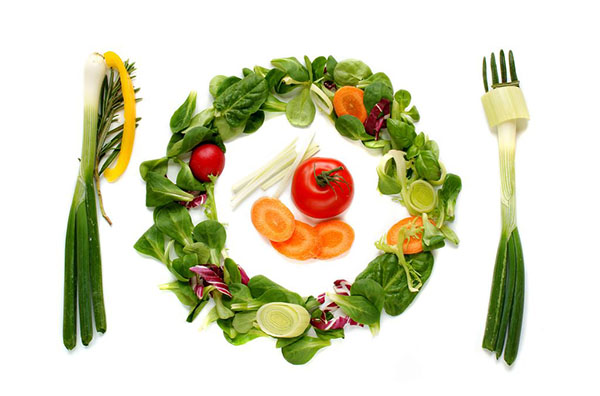There are three main varieties of vegetarianism: strict (veganism) – eating only plant foods; lacto-vegetarianism – vegetable plus dairy products; lacto-ovo vegetarianism – the use of vegetable and dairy products, as well as eggs.
“Supporters of vegetarianism as a health food believe that meat adversely affects the body due to the presence of biogenic amines, uric acid, ammonia and other metabolic products,” says the head of the Department of Food Hygiene of the Kharkov State University of Nutrition and Trade, Doctor of Medical Sciences, Professor Nina Dudenko. “They believe that these substances disrupt the functions of the central nervous system, overload the work of the liver and kidneys due to the need to neutralize them and excrete them from the body. But the opinion about the dangers of meat in case of non-excessive consumption of it has no scientific justification.

IT’S BETTER NOT TO BE A VERY STRICT VEGETARIAN
According to some reports, among strict vegetarians, there are fewer death rates from coronary heart disease, they are less likely to develop hypertension and insulin-dependent diabetes mellitus, some forms of cancer, in particular of the colon. Nevertheless, it has been found that vegans are more likely to have a lack of vitamins and minerals in the body, anemia, and a higher incidence of infectious diseases, in particular tuberculosis. In the diet of strict vegetarians, there is a deficiency of complete proteins, vitamins B2, B12, A and D. In addition, the content of calcium, iron, zinc and copper may also be insufficient in the body – they are poorly absorbed from plant foods. Therefore, only the body of a healthy adult can adapt to veganism, although it will not function at an optimal level.
“Strict vegetarianism is not recommended for children and teenagers,” warns Nina Dudenko. – Children from vegan families often lag behind their peers in physical and mental development, they often have alimentary diseases, for example, intolerance to any products. Vegan children have a shorter life expectancy because they have reduced immunity, which requires biologically valuable proteins to form. In addition, veganism cannot provide an increased need for easily digestible calcium in the elderly, especially in postmenopausal women, when osteoporosis is more likely to develop. A strict vegetarian diet adversely affects pregnant women and breastfeeding mothers, the development of the fetus and the health of infants.
It is better not to get involved in veganism and sick people. During a serious illness, the adaptive capabilities of the body may be insufficient, and in severe cases (serious surgery and injuries, burns, some diseases of the digestive system), when the need for a complete protein increases, veganism cannot satisfy it. The same applies to people engaged in heavy physical labor, or those who are intensively involved in sports.

VEGETARIAN FOOD CAN BE HEALTHY
“Unlike vegans, lacto-vegetarians are less deficient in vitamin B12, iron, zinc and copper, although milk and dairy products cannot fully satisfy the body’s needs for them,” says Nina Dudenko. – Lacto-vegetarians may have a slight iron deficiency.
Lacto-vegetarianism and even more so lacto-ovo-vegetarianism do not contradict modern principles of rational nutrition. If you use a variety of plant foods, such nutrition can be very useful due to the high content of vitamin C, carotenoids, potassium, magnesium, and dietary fiber. Vegetarian food may be helpful. Saturated fatty acids and cholesterol are almost completely absent in vegan food, so veganism can help, for example, in the prevention of atherosclerosis and some other diseases – if the diet is supplemented with vitamin preparations and minerals. A vegetarian diet that does not exclude animal products is recommended for obesity, atherosclerosis, intestinal dyskinesia and constipation, gout, and kidney stones. The dairy and vegetable orientation of nutrition is useful for gout, renal and hepatic insufficiency, for the elderly.
“And yet, for healthy people, a rational, balanced diet is optimal: vegetables, fruits and fruits, avoiding excessive consumption of meat and meat products,” the nutritionist believes. – Such a diet is more adapted to the biochemical individuality of the body than a diet that consists mainly of plant or animal products.
